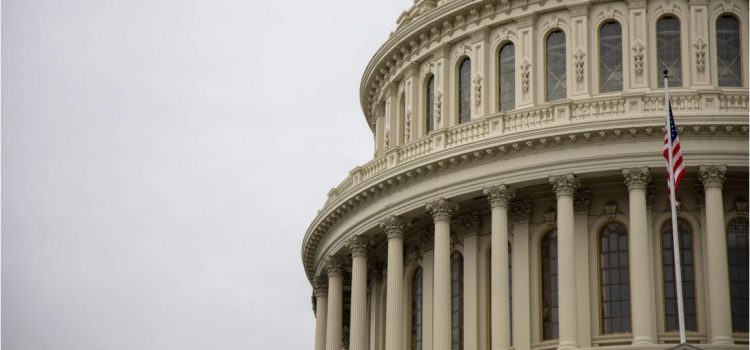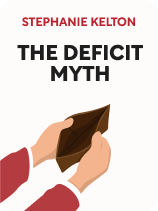

This article is an excerpt from the Shortform book guide to "The Deficit Myth" by Stephanie Kelton. Shortform has the world's best summaries and analyses of books you should be reading.
Like this article? Sign up for a free trial here .
Is Social Security running out of money? Why does modern monetary theory say the entitlement program crisis is a lie?
Modern monetary theory (MMT) says that social entitlement programs such as Social Security and Medicaid will always be safe. This theory goes against the common belief that, due to the number of Baby Boomers, the social entitlement programs will run out of money and future generations will need to find alternative forms of aid.
Keep reading for economist and MMT believer Stephanie Kelton’s take on the entitlement crisis.
The Phony Entitlement Crisis
Is Social Security running out of money? Many claims that entitlement programs like Social Security, Medicare, and Medicaid are verging on insolvency or about to “go broke” are common in American political discourse. But Kelton argues that these claims are also false and designed to provide cover for a political agenda. The truth, she writes, is that these programs’ finances are perfectly healthy, and the federal government will always be able to fund them.
These programs are crucial, as they provide much-needed financial security to society’s most vulnerable members—the poor, children, the elderly, the sick and disabled, widows and widowers, and veterans. Kelton writes that our society’s willingness to provide and care for its most at-risk people is a test of our humanity, compassion, and values that is far more important than these programs’ budgetary effect.
| The Moral Case Against Entitlement Programs Some conservative economists make the opposite moral argument from Kelton—that it is immoral to use the tax code to establish anti-poverty programs that confiscate property from some members of society to compensate others, even if those in the latter group believe themselves to be disadvantaged in some way. This is the argument that Milton Friedman makes in Capitalism and Freedom. Friedman writes that your compensation is a direct result of the value you create in the economy through your labor (the work you perform for which you are paid in wages and tips) and your capital (the productive assets you own, like land or machinery). According to Friedman, economic outcomes are unequal because human beings all have different endowments of energy, talent, and capital. Some jobs are more unpleasant, entail more risk, or require longer hours than others—because fewer people will wish to do such jobs, they tend to be more highly compensated. Those who avoid such jobs tend to receive alternative compensation in the form of greater job security or more leisure time. Presumably, these individuals place greater value on such non-monetary rewards. A system that mandated equal compensation would therefore produce unequal outcomes, because individuals doing unpleasant work would receive the same money as those doing more leisurely work. But because one group values money more than the other, the total compensation would be more unequal than it was before. |
The Attack on Social Insurance
Kelton writes that politicians (usually, although again not exclusively, on the political right) argue that these programs rest on a financial house of sand owing to a combination of factors—an aging population as the massive Baby Boomer cohort continues to retire, a payroll tax financing system that is too meager to support the growing benefit obligations, and an unfavorable ratio of active workers to dependents that threatens to collapse the whole system.
They typically recommend a program of harsh austerity to stem the tide of red ink—such as direct cuts to benefits, decreases in cost-of-living adjustments, raising the retirement age, and slowing inflation-adjustment increases.
Kelton says these arguments and policy proposals are purely political in nature. They are wielded by powerful interest groups that wish to create the perception of out-of-control social insurance programs because they don’t want to pay the taxes to finance them; have an ideological opposition to wealth redistribution; and believe that social insurance is an illegitimate function of government that robs from the deserving and productive to reward the undeserving and unproductive.
| Entitlement Reform and the Threat to The Poor It’s been argued that some of these proposals to make entitlement benefits less generous really could have disastrous effects for the poor. Take the proposal to raise the Social Security retirement age. Many politicians argue that it’s simple common sense to do this because Americans on average live significantly longer than they did when the program was established in the 1930s. But this ignores the inequities in lifespans between rich and poor Americans. Retirees who earned above-average incomes during their working years do indeed live on average six years longer than they did in the 1970s. But for retirees earning below-average incomes, the average increased life expectancy is only 1.3 years above what it was in the 1970s. Thus, raising the retirement age constitutes a highly regressive measure that penalizes poorer Americans by denying them years worth of earned benefits they would otherwise enjoy. |

———End of Preview———
Like what you just read? Read the rest of the world's best book summary and analysis of Stephanie Kelton's "The Deficit Myth" at Shortform .
Here's what you'll find in our full The Deficit Myth summary :
- A look at national debt through the lens of Modern Monetary Theory
- How public discourse about national debts and deficits gets the facts wrong
- Why MMT says the U.S. government could finance any program it wishes to create






